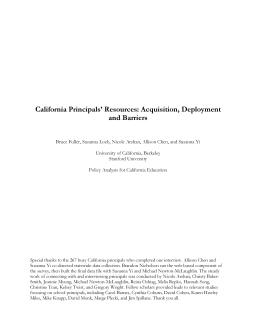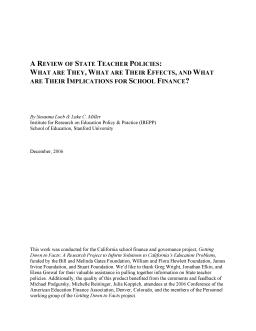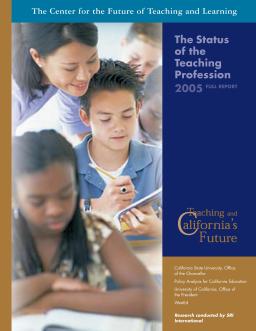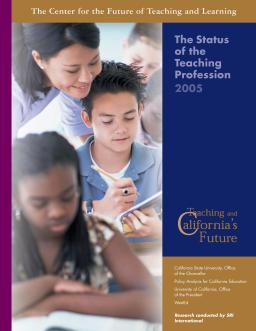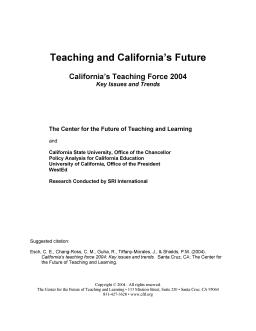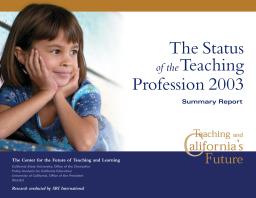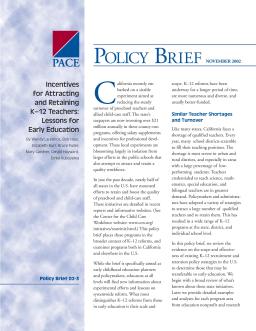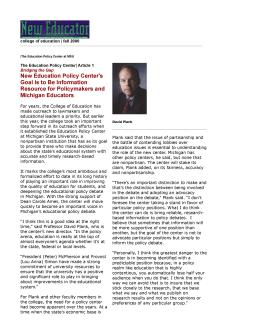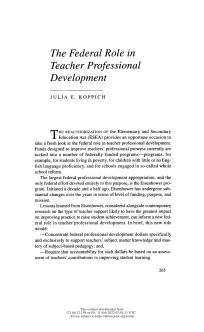Acquisition, Deployment, and Barriers
Published
Summary
This report examines the fiscal and labor resources of California principals and how they acquire and utilize them to improve student performance. The authors seek to understand the background characteristics and educational goals of California principals, as well as the types of monetary, human, and informational resources they acquire and how they allocate these resources within their schools. The report also explores the support and constraints that principals experience from various actors as they attempt to acquire and deploy resources to raise student performance.
What Are Their Effects, and What Are Their Implications for School Finance?
Published
Summary
The report explores the impact of teacher sorting, or the tendency for high-achieving students to be assigned to more effective teachers, on student achievement. It finds that teacher sorting has a significant positive effect on student achievement in both math and English language arts. The effects are particularly strong for students who start out low-achieving. The report argues that policies aimed at reducing teacher sorting, such as random assignment of students to teachers, may be counterproductive for student achievement.
Full Report
Published
Summary
The Teaching and California's Future initiative provides policymakers with data on the teacher workforce and labor market. The initiative's annual report details teacher development policies and their impact on teacher quality and distribution. The goal is to help policymakers make informed decisions about strengthening the state's teacher workforce.
Published
Summary
The quality of teaching and the need to expand California's ranks of excellent teachers demand urgent public discussion. We must attract the best and brightest to teaching, prepare them effectively, and support and retain them. Solutions require bipartisan leadership, not spin. This report presents the latest research and projections, highlighting that while some numbers are improving, we're likely to face severe shortages again soon and the pipeline for recruiting, preparing, and training teachers has substantial problems.
California’s Teaching Force, 2004—Key Issues and Trends
Published
Summary
California's aging teacher workforce will lead to a significant demand for teachers, with shortages particularly in special education and secondary education. The number of underprepared teachers in low-performing schools serving minority, poor, and ELL students is disproportionate. Budget cuts have reduced funding for recruitment and professional development programs, and California's induction system needs refinement. Curriculum-based professional development programs have mainly targeted elementary school teachers, neglecting the training needs of secondary teachers.
Summary Report
Published
Summary
This report argues that the state of California needs to prioritize better education for all children with a sustained long-term investment of resources and leadership. Despite political upheaval and fiscal problems, there is a consensus for better education. The authors suggest that the issue requires a response as intense and sustained as the state's response to natural disasters, and calls for a system of teacher development to ensure all teachers have the necessary knowledge and skills to meet academic standards.
Lessons for Early Education
Published
Summary
This policy brief discusses state initiatives in the US aimed at retaining and improving the quality of preschool and childcare staff, with a focus on California's $21 million annual investment. While K-12 reforms have been underway longer and are usually better-funded, early childhood education policymakers and educators will find valuable information about experimental efforts and lessons on systemwide reform.
New Education Policy Center's Goal Is to Be Information Resource for Policymakers and Michigan Educators
Published
Summary
Michigan State University's College of Education has established the nonpartisan Education Policy Center to provide lawmakers and educational leaders with accurate, research-based information to improve the state's educational system. With the support of the university's resources, the center aims to play an important role in deepening the policy debate and bringing about improvements in the system. The center was established due to a lack of systematic communication between researchers and policymakers in Michigan.
Published
Summary
The reauthorization of the Elementary and Secondary Education Act provides an opportunity to reconsider the federal role in teacher professional development. The largest federal professional development fund is the Eisenhower program. Lessons from Eisenhower and contemporary research suggest that federal funds should be focused exclusively on subject matter knowledge and pedagogy and accountability should be based on assessment of student learning. The purpose is to generate discussion on how to more effectively use federal dollars to improve student achievement.
